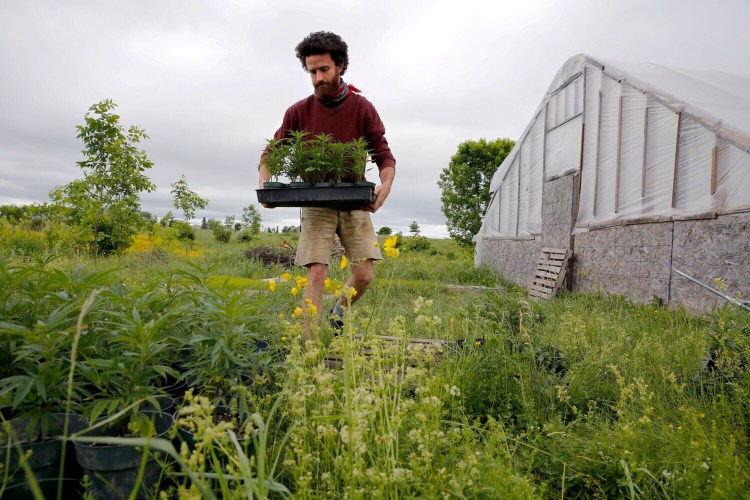New legislation has reopened Maine’s CBD foods market to out-of-state hemp growers.
Maine’s 165 state-licensed hemp farmers have had the growing market of CBD-infused edibles and beverages to themselves since August. That is when a new state law made it illegal for Mainers to infuse a latte or even a dog biscuit with cannabidiol, or CBD, made from out-of-state hemp.
The law was intended to protect Maine’s CBD market and hemp farmers from the threat of federal intervention, but it left edibles makers scrambling to find an affordable, reliable source of Maine-grown hemp and concerned that scarcity could lead to higher prices.
But state lawmakers adopted a legislative fix before those dire predictions could face a prolonged test.
The new law was created to allow Maine to launch an experimental indoor hemp program, but it also gave lawmakers the chance to eliminate the Maine-grown hemp requirement. As of Sept. 19, Maine edible makers could import CBD from another state with a licensed hemp program.
Under the new law, the CBD-infused food or beverage must still be manufactured in Maine. The labeling requirements established in March remain the same, too, prohibiting the edibles maker or retailer from making any health claims about the CBD food or beverage.
Farmers worry the change could undercut the state’s hemp industry just as it starts to take off. Three years ago, Maine was growing less than a quarter acre of hemp. As demand for CBD products surged, however, the program exploded. The state licensed 2,700 acres of production in 2019.
As owner of Victory Hemp, Sarah Hewitt is licensed to grow up to 40 acres of hemp in Union and Cushing with plans to sell it into the CBD market, where farmers like Hewitt have traditionally been able to net higher profits than hemp grown for fiber, food or construction products.
In theory, she doesn’t mind the new law. She believes manufacturers should be free to buy ingredients wherever they want, but she urged them to stick by Maine farmers to support the rural economy. And for now, she is safe – she sells mostly to out-of-state buyers.
“It may limit my ability to collaborate with Maine manufacturers to help build the hemp industry together in the long run,” Hewitt said. “If cheap CBD extracts from China undercut the market, the long-term effects could be devastating for hemp farmers here.”
She says Maine has a strong cannabis heritage, and is nationally known for its award-winning products.
“It’s a shame they aren’t all being made with Maine-grown hemp,” Hewitt said.
But edible makers worried about the reliability of sourcing CBD exclusively from hemp farmers who are still learning the crop’s secrets, and how to get the most out of seeds intended for cultivation in Oregon or Poland, not Maine, with its short and comparatively chilly growing season.
And it is cheaper to buy hemp grown at scale by big farms in warmer climates, they say, and extracted in states with more hemp-only extraction labs than Maine. Most extraction labs here are set up to process both hemp and marijuana, causing longer waits and higher prices.
The state law was intended to protect the state market from being shut down while federal regulators worked out how to implement the U.S. Farm Bill, which legalized hemp but left oversight of CBD, the highly valued hemp extract, in limbo, especially when added to foods.
Lawmakers believed that keeping all aspects of CBD production in state, from the hemp used to make the CBD to the manufacture, sale and consumption of the infused food or beverage, would insulate it from federal intervention.
In July, Maine directed its agriculture and health inspectors to ask CBD food makers and retailers for receipts to prove the products were made from Maine hemp during inspections. Inspectors found some violations, but focused on educating violators rather than punishing them, said Jim Britt, a spokesman for the Maine Department of Agriculture, Conservation and Forestry.
According to the Brightfield Group, a national marijuana consulting firm, consumers spent $591 million on CBD products nationwide in 2018 in the belief that it eases ailments such as insomnia, anxiety, depression and pain.
Maine hemp farmers can earn between $16,000 and $200,000 per acre, depending on their production method, product quality and end market, said Hewitt, who works as a consultant and brokerage service for other Maine hemp farmers.
This story was updated at 11 a.m. on Oct. 25 to clarify the date the law change took effect.
Comments are not available on this story.
Send questions/comments to the editors.



